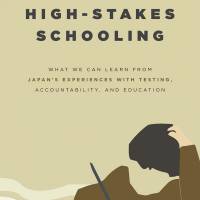In "High-Stakes Schooling," an important book for anyone interested in Japanese education within a global context, U.S. professor of education Christopher Bjork offers a comprehensive and comparative look into Japan's recent educational reforms. Bjork analyzes the impact of the controversial and deliberate easing from "high-stakes, standardized education" to yutori kyoiku (literally, "relaxed education") — an easing that continues today with new reforms.
High-Stakes Schooling, by Christopher Bjork
272 pages
University of Chicago Press, Nonfiction.
Bjork's research involved interviews with teachers, parents and students at several elementary and junior high schools outside of the Tokyo metropolis. Combined with intensive comparative studies of other countries notorious for their standardized educational system — such as Singapore — he evaluates Japan's place in global education since the country has officially tried to enact a holistic approach to learning.
Bjork's final conclusion may dishearten those currently immersed in this system. He writes that Japan's attempts to reshape its schools may have provoked passionate debates about the education system, but has only led to "limited changes to curriculum and instructional practice."
The book serves as a timely warning about the pitfalls of standardization and the difficulties of adopting alternatives. With extensive references and notes, "High-Stakes Schooling" will satisfy both the educational scholar and the concerned parent hoping to better understand the contradictions of Japanese education.



















With your current subscription plan you can comment on stories. However, before writing your first comment, please create a display name in the Profile section of your subscriber account page.